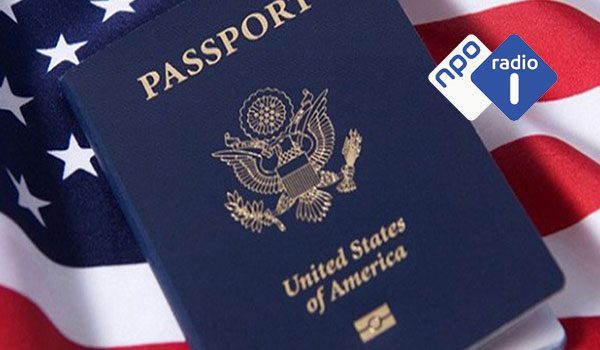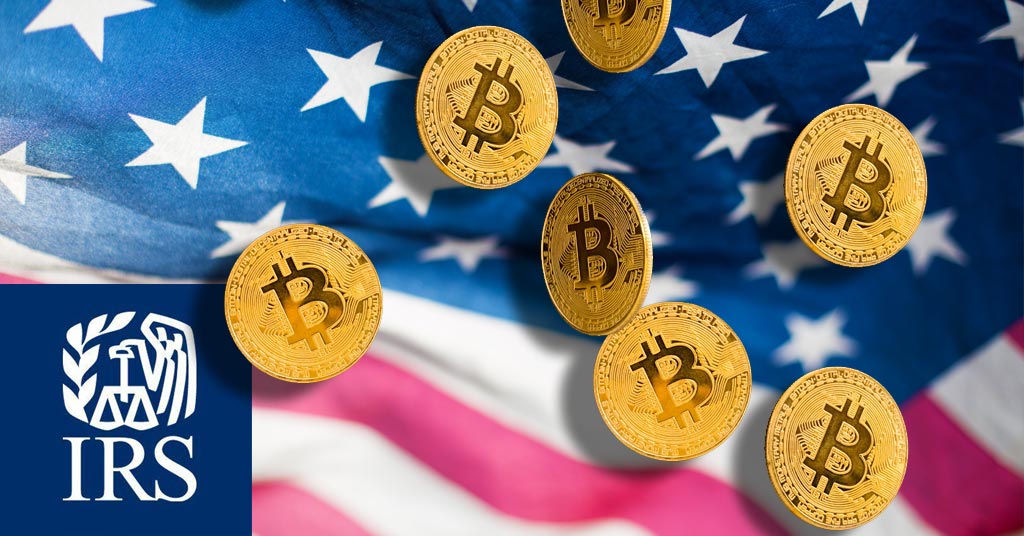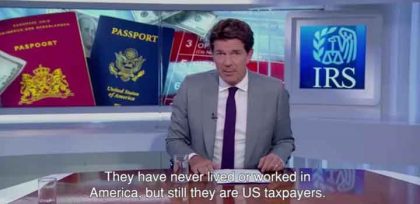
CARES act information

CARES Act information (English only)
The US has a financial aid package of $1,200, – for every US citizen, and also for the ones living abroad. The package is called the CARES act (Coronavirus Aid, Relief, and Economic Security). Everyone who is eligible gets the payment the IRS has stated. This applies to all US citizens who have been filing but also non-filers.
We have been hard at work lobbying with government and banking organizations to ensure payments can be received. We have also collected all information, tips on CARES. Note that this page will be regularly updated. Read our FAQ f you’re eligible and how best to collect your payment. Click on a question or scroll down:
FAQ
- Am I Eligible for the $1.200, – CARES cheque?
- Do I need to file my 2020 US tax return to get the payment?
- If I do the streamlined procedure do I get $1.200?
- Do my partner or children qualify?
- How can I exchange a paper cheque?
- How to apply to the IRS ‘Get my payment’ website?
- Do I get the cheque when renouncing?
- How to return a stimulus check?
- I got a letter without a check?
- Disclaimer
- About us
Am I eligible for the $1.200
You are eligible for the $1.200, – CARES act whether you have filed a tax return or not. Below you will find the different scenarios. You qualify for the CARES act when you are either:
A) Filing:
You earned less than $99.000, – G.I.A (gross adjusted income), and filed at least your 2018 return and your 2019 return (if you were above the filing thresholds for income). Please check your 1040 to see what your income was. If your income was more than $ 75.000, – the CARES act cheque becomes less and is reduced to zero when you earn more than $99.000. We posted some example calculations in this article.
B) Non-filer:
You also are eligible for the $1.200,- dollar cheque if you didn’t need to file in the past years because you didn’t have (enough) income to meet the threshold in 2019. You would then qualify as a Non-filer.
For example: when your income is less than $12,200 (this also applies to children with an SSN), You’re married filing jointly, and together your income is less than $24,400 or you have no income. You’re NOT considered a non-filer when you do make an income according to the IRS criteria but have decided not to file.
C) I never filed and have income.
Please check the article about Streamlined
Do I need to file my US return for 2020?
Many people who did file in 2019 got a confirmation for the $1200, – just one week after E-filing. The IRS says that everyone who has filed for 2018/2019 should automatically get the payment but many haven’t. We, therefore, recommend e-filing the 2020 Return and claiming the Recovery Rebate.
We don’t know how long it will take before you get the actual cheque. People have been receiving cheques at different moments. You’re only able to add banking details on your return if you owe taxes or are eligible for a refund. otherwise, banking details will not be transmitted to the IRS.
If I do the streamlined procedure do I get $1.200?
The Streamlined procedure is for people who just discovered they were US persons, have a filing obligation, and want to file without penalties. You’re eligible for the CARES cheque in case you did have an income up to $99.000 but never filed.
In this procedure, you will be asked to file 3 years back and receive no penalties. Usually, there is also no tax owed. Since the $1.200, – is paid to people who have filed since 2018 you should be eligible.
The IRS has said they will distribute cheques until the end of the tax year 2020 which needs to be filed June 2021. This should cover a large portion of the Streamlined procedure. After this deadline, the CARES act cheque is no longer available. Please contact us if you’re considering filing to get step-by-step help with this procedure from an affordable expert.
If you want to file yourself, please check the IRS website. It is not recommended as the forms are complicated and mistakes can lead to serious complications. If you want to find an expert who can help you file in an affordable manner then please contact us without any obligation.
Do my partner and children qualify?
They only qualify if they have a Social Security Number. Please read our article on how to obtain one. If they do you can claim $500, – for children and $1.200, – for a partner.
If you’re filing jointly and your partner is NOT a US citizen, then you will receive no funds at all. We don’t know why this applies but it does. Do also note if you file jointly your partner is obliged to also file a US Tax return which is a serious obligation.
If you are married you must file as married separately. There is no difference in the CARES payment if you are single or file separately.
How to exchange a paper cheque?
First, check if your local bank will accept cheques. In the Netherlands ING is one of the few banks that have a procedure to accept cheques. Unfortunately, you can’t have someone else cash the cheque for you. Also, remember to sign the cheque on the back when submitting it for a deposit.
If you already have a paper cheque and are having trouble exchanging it at your local bank then an option is to open a free account with the SDFCU (State Department Federal Credit Union). Although the name sounds like it is government-related it is not what we have been told. It is a little harder to open your bank account there because you always need a Social Security Number and in some cases the original SSN certificate which shows your SSN number.
The account they offer is free of charge. Only after one month when opening the account you can use their ‘remote deposit’ service to cash a cheque. This service can be found via their website once you’re logged into your account. The mobile app also has several functions but is meant for residents in the United States. Please direct all questions about the service to the SDFC directly if you have them.
Using the IRS Get my payment website?
The IRS claims that all payments will be made automatically if you’re eligible. We’re not sure this will be the case, especially for Americans living overseas. In order to check if you will receive the payment the IRS has launched the ‘Get my payment website’.
The website allows you to check if a cheque has been or will be dispersed and enter bank details. You can not enter your US bank details anymore on the get my payment website.
The ‘Get my payment’ website is not working well. A lot of people get the message ‘Payment status not available’. Other messages indicate the system has not (yet) recognized you.
Once you have determined you are eligible make sure you have all your information at hand: SSN, Date of Birth, and address. Without a valid SSN, it is not possible to apply.
*. If you didn’t have income before 2019 but have income in 2019, we don’t recommend using the non-filer option. It is not clear how this impacts your return.
We would like to stress that the website still gives almost all Americans living overseas the message ‘payment status not available’ or not recognized. You can give it a try as its updated on a weekly basis.
We kindly ask you to direct any questions regarding above information directly to Transferwise or the IRS. As soon as there is new information on the CARES act and IRS website, we will also update you.
Do I get the cheque when renouncing?
No, the IRS states you need to be a citizen in 2020 with a valid SSN. If you did get the cheque our advice is to not cash the cheque and return it. Also the IRS will look at your return of 2020 which has to be filed in 2021. If you have or are renouncing this year you won’t be filing 2021.
How to return a stimulus check?
If you received an erroneous paper check, here’s what to do:
- Write “void” in the endorsement section on the back of the check.
- Write a note to include with the check explaining why it’s being returned.
- Mail the check and the note to the IRS location based on the state you live in. The list of addresses is available on the IRS website.
If you got a direct deposit, or you already cashed the paper check you received, here’s what to do:
- Submit a personal check or money order to the IRS address corresponding to your state — you’ll find that list here.
- Make it payable to “U.S. Treasury” and write “2020EIP” along with the recipient’s Social Security number or individual taxpayer identification (TIN) number.
- Write a note to include with the check explaining why it’s being returned.
A foreign country, U.S. possession or territory*, or use an APO or FPO address, or file Form 2555 or 4563, or are a dual-status alien.
Austin Internal Revenue Service
3651 S Interregional Hwy 35
Austin, TX 78741
Source (see last questions): https://www.irs.gov/coronavirus/economic-impact-payment-information-center
I got a letter without a cheque
The economic recovery law that provided for the stimulus payments requires that a written notice be sent via mail to the last known address of any taxpayer who received one of the stimulus checks. The law says the letter must be sent no later than 15 days after the money has been distributed and must include the payment method, the amount of the payment, and an IRS phone number to report any failure to receive such a payment.
The letter some people are receiving from the White House (not the IRS) is intended to fulfill this provision of the law. Checks will not be included in this letter and yes, some individuals have received the letter and have still not received a recovery rebate payment and some individuals who do not qualify for the recovery rebate are receiving payments. The IRS and Treasury are processing 130 million recovery rebates so we are hearing reports of “glitches” in the system. Unfortunately, we don’t know when you will get the actual check. If you do receive a cheque after getting this letter please let us know so we can inform other.
Disclaimer
While we have done our utmost best to collect all information currently available and research the best options for receiving funds this should not be considered as financial advice. We urge readers to do their own due diligence and can’t accept any liability arising out of actions taken due to this article.
Please feel free to email us or call if you have any other questions regarding your US tax filing requirements free of charge and without any obligations. Thank you.
About Americans Overseas
We, the founders of Americans Overseas, were born in the Netherlands and obtained our American nationality through our (American) mother.
When we heard about the US tax system for the first time around 2013, we were in total disbelief (it can’t be true!), anger (how can they do this?), fear (am I going to get fined or pick up other problems?), and panic (what should I do?). It is (unfortunately) true that there is an additional American tax levy. But there’s no information from the local government, and when approached, the consulate referred us to the IRS, and the IRS was impenetrable.
That’s why we started this initiative to help people from all over the world by providing proper information about the US tax system to avoid unnecessary panic, and offering help free of obligation and free of charge. If needed, we have a network of affordable professionals (accountants) who can help you with your tax obligations.
Americans Overseas can advise you which renunciation program is best for you and inform you about the renouncing US citizenship tax implications. If you have questions you can contact us at Americans Overseas.
Frequently asked questions
Understanding the US tax system, the obligations, and all the additional terms can be difficult. Especially if one lives outside of America. Is your question not answered? Contact us.
-
Who is required to file taxes in the US?
U.S. citizens and resident aliens who live abroad are generally required to file a federal income tax return and pay taxes on their worldwide income.
Read more... about Who is required to file taxes in the US? -
Do US citizens living abroad still have to file taxes in the US?
Yes, US citizens are required to file taxes on their worldwide income, regardless of where they are living.
Read more... about Do US citizens living abroad still have to file taxes in the US? -
How can I cash my US check?
Received an American check? You can cash your check in the following ways: cash the check at your own bank, transfer to another person (endorsement), cash checks using an online service or cash the check by another bank.
Read more... about How can I cash my US check? -
Are there any special tax forms required for US citizens living abroad?
US citizens living abroad may be required to file Form 2555 and/or Form 1116 to claim the foreign-earned income exclusion.
Read more... about Are there any special tax forms required for US citizens living abroad? -
What is FBAR filing?
FBAR (Foreign Bank Account Report) filing is the requirement for certain U.S. individuals and entities to report their foreign financial accounts to the Financial Crimes Enforcement Network (FinCEN) of the U.S. Department of Treasury. The FBAR filing requirement applies to U.S. persons who have a financial interest in, or signature authority over, one or more foreign financial accounts if the aggregate value of those accounts exceeds $10,000 at any time during the calendar year.
Read more... about What is FBAR filing?





